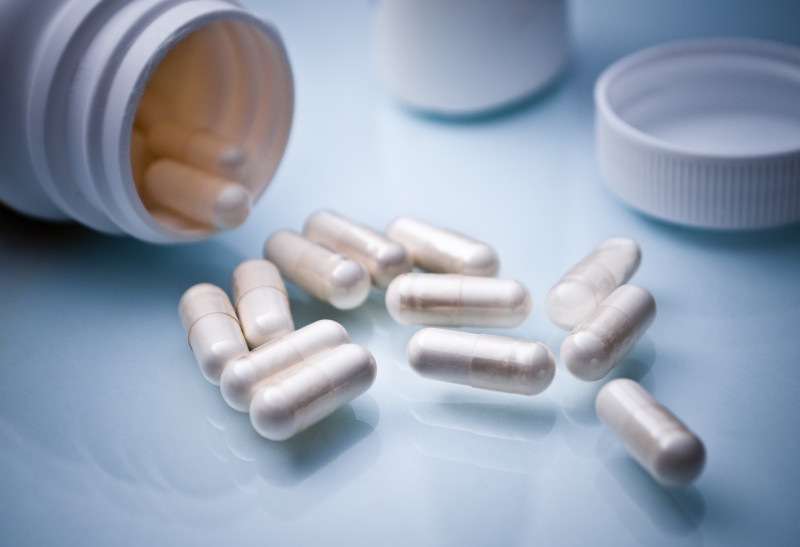Patients Less Likely to Stop Taking Tecfidera Than Aubagio: Study

luckyraccoon/Shutterstock
Tecfidera has a lower risk of discontinuation due to treatment failure than Aubagio in people with multiple sclerosis (MS), a new observational study in Norway suggests.
In the study, people receiving Tecfidera (dimethyl fumarate) were 38% less likely to experience treatment failure and stop use than those receiving Aubagio (teriflunomide).
The study, “Real-world discontinuation rate of teriflunomide and dimethyl fumarate in multiple sclerosis,” was published in the Multiple Sclerosis Journal – Experimental, Translational and Clinical.
Injectable disease-modifying treatments (DMTs), such as interferon-beta and Copaxone (glatiramer acetate injections), were first-line treatments for MS until the oral DMTs Tecfidera (marketed by Biogen) and Aubagio (marketed by Sanofi Genzyme) became available in Norway in 2013.
Once available, many people with MS switched to oral DMTs to avoid painful injections and the flu-like symptoms often associated with injectable interferons.
While Tecfidera and Aubagio reduce MS relapses and disability progression at similar rates, it is unclear if they also share comparable effectiveness and tolerability rates. Thus, a team of scientists in Norway sought to compare the real-world side effect, discontinuation, and treatment failure rates of Tecfidera and Aubagio using data from the Norwegian Multiple Sclerosis Registry and Biobank. Of note, most of the researchers reported financial ties to pharmaceutical companies.
A total of 354 participants were included in the study — 185 treated with Tecfidera and 169 with Aubagio. The mean age of participants receiving Tecfidera was 40 years and for those receiving Aubagio, it was 47 years. Study participants were primarily female (247 out of 354). A proportion of the participants (51.7%) had never received treatment for MS prior to the oral DMTs — this is considered the treatment-naïve group.
In total, 83.2% of participants treated with Tecfidera and 60.9% treated with Aubagio reported side effects. Participants receiving Tecfidera most frequently reported flushing (40.1%) and gut problems (26.3%) such as nausea, diarrhea, and stomach pain, while those receiving Aubagio reported mainly gut problems (24.5%) and hair loss (12.0%).
Even though more patients experienced side effects from Tecfidera, the risk of stopping treatment due to side effects was similar for both DMTs, suggesting that participants “experienced the side effects caused by Tecfidera as less burdensome than those caused by Aubagio,” the researchers wrote.
Women were more likely than men to stop treatment due to side effects.
Among the treatment-naïve group, those receiving Aubagio were more likely to stop treatment due to side effects or treatment failure than those receiving Tecfidera.
“Patients receiving [Tecfidera] had a 38% lower risk of discontinuation because of treatment failure than patients using [Aubagio]. There was no difference between the two treatment groups in risk of discontinuation due to side effects,” the researchers wrote. “A separate analysis of treatment naïve patients showed that [Tecfidera] users had a 38% lower risk of discontinuing treatment for any reason (treatment failure or side effects) compared to [Aubagio] users.”
Overall, participants 25 years and younger had a higher risk of treatment failure than older patients.
Study limitations noted by the team included differences in age and disability progression between participants using Tecfidera and Aubagio, and not considering factors such as smoking and socioeconomic status.
Still, the “findings suggest that dimethyl fumarate [Tecfidera] has a lower risk of discontinuation because of treatment failure among both treatment-experienced and treatment-naïve patients,” the researchers wrote.
The team suggested that further studies “of discontinuation and efficacy among treatment-naïve patients would help clinicians and patients in choosing first-line MS treatment,” and that “a new study including data on socioeconomic status such as education and employment would also help clinicians determine if they are motivating factors for patients to continue treatment.”








